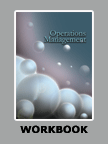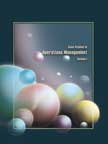Revamping the Supply Chain - The Ashok Leyland Way
|
|
ICMR HOME | Case Studies Collection
Case Details:
Case Code : OPER004
Case Length : 08 Pages
Period : 1992-1998
Organization : Ashok Leyland
Pub Date : 2002
Teaching Note : Available
Countries : India
Industry : Automobiles
To download Revamping the Supply Chain - The Ashok Leyland Way case study (Case Code: OPER004)
click on the button below, and select the case from the list of available cases:

Price:
For delivery in electronic format: Rs. 200;
For delivery through courier (within India): Rs. 200 +Shipping & Handling Charges extra
» Operations Case Studies
» Case Studies Collection
» ICMR HOME
» View Detailed Pricing Info
» How To Order This Case
» Business Case Studies
» Case Studies by Area
» Case Studies by Industry
» Case Studies by Company 
Please note:
This case study was compiled from published sources, and is intended to be used as a basis for class discussion. It is not intended to illustrate either effective or ineffective handling of a management situation. Nor is it a primary information source.
Chat with us

Please leave your feedback

|
|




<< Previous
"The ultimate objective of assaulting costs in the supply
chain is not just to effect one-off reductions in the price of components. It
is, instead, to set off a chain of continuously falling costs-by mutually
discovering ways to do things better without a proportional increase in the
rupees poured into the process."
- Business Today, January 7, 1999.
Introduction
|
V Ramachandran, (Ramachandran) deputy general manager, Corporate Buying Cell,
Ashok Leyland (AL), the Chennai based manufacturer of medium and heavy
commercial vehicles was surfing the Internet at midday in his office. A closer
look at the screen showed that he had logged on to an auction site.
But this auction site was different. Ramachandran was looking for suppliers of
some specific tyres in the global market. At a price of $350, five suppliers
were interested. He then lowered the price by $5. Now three of them were
willing. Ramachandran kept lowering the price, each time by $5. At $325, there
was only one response- the seller asked for an hour's time to confirm.
|

|
Within one hour, the Czechoslovakian company confirmed it could
supply the tyres. Both parties then signed up by e-mail and the deal was
struck at $325, saving Ashok Leyland Rs 14,700 per set. Known as reverse
auction, this was one of the many ways AL was reducing materials cost, which
accounted for nearly 70 per cent of its product cost.
|
|
In 1997-98,
AL, recorded a profit-after-tax (PAT) of Rs. 18.4 crore1 on sales of Rs.
2,014.3 crore. A look at the previous financial year's PAT showed that
the profits for 1997-98 had gone for a severe beating. In 1996-97 AL had
a PAT of Rs. 124.9 crore on sales of Rs. 2, 482.5 crore. With the
manufacturing Industry reeling under recession, the freight generating
sectors (manufacturing, mining and quarrying) saw a steep decline
resulting in a severe downturn of freight volumes.
For AL, whose
business was directly dependent on moving material, goods and people
across distances, this had come as a severe blow. |
AL's supply chain2 had gone haywire under the recession which had eaten away 17.62 per cent of its revenues in one year forcing the company to helplessly allow inventories to build up. The results were showing on working capital. It had climbed from 33.34% of sales in 1993-94 to 58.81% in 1997-98.
Revamping the Supply Chain - The Ashok Leyland Way
- Next Page>>
|
|










